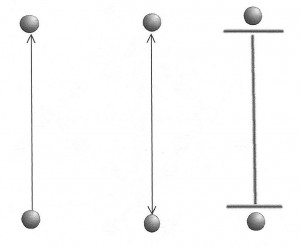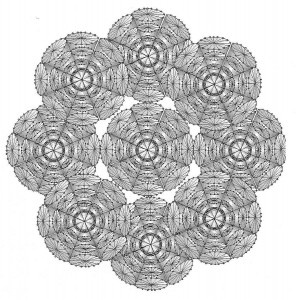This week we were invited to work with the paragraph below:
The reading from the book SDTS suggests ‘I am here’ as a starting point. This makes an interesting contrast to the idea that space is fundamental. You might ask yourself whether the two viewpoints are diametrically opposed, or whether ‘I am here’ is just a version, an expression, of ‘space is fundamental’. Put differently, if you think in terms of “space projecting space into spaceâ€, which of the three occurrences of ‘space’ could be equated with ‘I am here’? Any of them?
The ‘Space Projecting Space‘ essay by Jack Petranker in the book, ‘A New Way of Being,’ says that: The intimate relation between space and knowledge gives us two distinct ways of looking at space. Because it has the capacity to accommodate unlimited appearances (countless stories), we can say of space that it is empty. But because it accommodates only what makes sense, within a specific known world of experience, we can also say that space is full—filled to capacity by the world that the story makes available. pg 163
If it is the space that is projecting, countless stories are possible, but if it is the ‘I am here’ that is projecting; only the founding story is allowed. Our usual way of projecting is with the ‘I am here’. We accept only what make sense to us, only what fits in what is already known. In this approach, in starting with the ‘I am here’ we set a position, reacting against space, exchanging infinite by limited.
On the other hand, the approach offered by SDTS starting with ‘I am here’, consider this starting point as a pointer to an empty space, a space of infinite possibilities.
  |
  |

I like the distinction you draw between how unlimited stories preserves space as empty and the founding story of the I fill space up.
At the same time, I wonder if “I am here” can provide a story line that can itself be opened up, made more transparent, and whose central character, the “I”, can set out on it’s own unanticipated course into space. Perhaps we can persuade our own story to include greater awareness that space is home to the stories of everyone we know and don’t know. I suspect that, even though the TSK Vision invokes rich alternatives to my own limitations, I will always remain anchored in a particular time and place out of which my most personally relevant forms of knowledge sprout. Since this seems to be the case for me, I love it that the TSK vision offers ways to see through my limitations to a greater knowledge that has fashioned them.